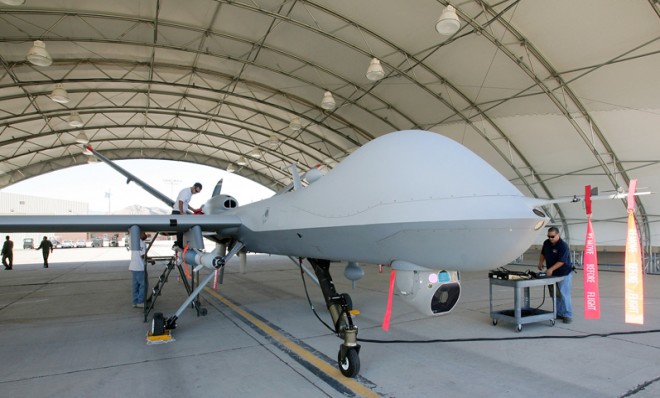Why the CIA might have to dish more details on drone strikes
An appeals court ruling says the agency can no longer keep quiet about the controversial program


A free daily email with the biggest news stories of the day – and the best features from TheWeek.com
You are now subscribed
Your newsletter sign-up was successful
A federal appeals court on Friday struck a blow to the government's secrecy surrounding its controversial drone program, reversing a lower court ruling that allowed the CIA to remain silent on whether it had any records related to surreptitious drone attacks.
The three-judge panel unanimously ruled that it was neither "logical nor plausible" for the CIA to refuse to confirm or deny whether it kept records on drone strikes. Top security officials, including former CIA chief Leon Panetta, new CIA director John Brennan and even President Obama himself, have all acknowledged the program's existence, rendering the CIA's defense moot, the court said.
The lower court had dismissed a Freedom of Information Act lawsuit brought by the American Civil Liberties Union that sought the spy agency's drone records. But the CIA, saying that compliance with that FOIA request would endanger national security, convinced the court it should not be forced to reveal if those documents even existed in the first place.
The Week
Escape your echo chamber. Get the facts behind the news, plus analysis from multiple perspectives.

Sign up for The Week's Free Newsletters
From our morning news briefing to a weekly Good News Newsletter, get the best of The Week delivered directly to your inbox.
From our morning news briefing to a weekly Good News Newsletter, get the best of The Week delivered directly to your inbox.
The appeals court shot that argument down.
"Although these statements do not acknowledge that the CIA itself operates drones, they leave no doubt that some U.S. agency does," Judge Merrick Garland wrote in the court's opinion.
For now, the CIA doesn't have to disclose any new details about the drone program. The appeals court sent the case back down for reconsideration, where the agency can mount a different defense. But the new hearing could force the CIA to reveal the existence of those long-sought drone records, which in itself would be a triumph for the ACLU. The CIA would then also need to provide an explanation for why the content of those records should remain under wraps.
"This is an important victory," ACLU Deputy Legal Director Jameel Jaffer said. "It requires the government to retire the absurd claim that the CIA's interest in the targeted killing program is a secret, and it will make it more difficult for the government to deflect questions about the program's scope and legal basis."
A free daily email with the biggest news stories of the day – and the best features from TheWeek.com
Jon Terbush is an associate editor at TheWeek.com covering politics, sports, and other things he finds interesting. He has previously written for Talking Points Memo, Raw Story, and Business Insider.
-
 How the FCC’s ‘equal time’ rule works
How the FCC’s ‘equal time’ rule worksIn the Spotlight The law is at the heart of the Colbert-CBS conflict
-
 What is the endgame in the DHS shutdown?
What is the endgame in the DHS shutdown?Today’s Big Question Democrats want to rein in ICE’s immigration crackdown
-
 ‘Poor time management isn’t just an inconvenience’
‘Poor time management isn’t just an inconvenience’Instant Opinion Opinion, comment and editorials of the day
